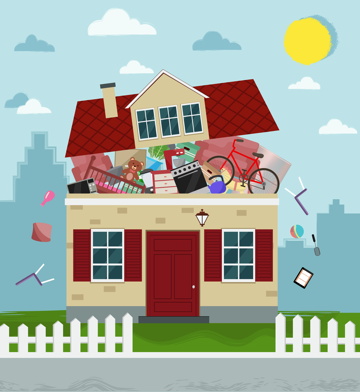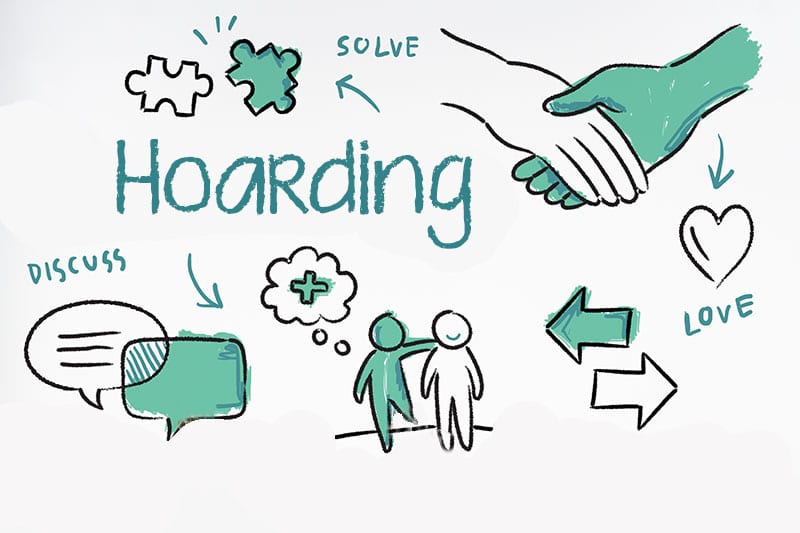My Services
Defining Hoarding and Its Effects
Hoarding is a mental health disorder that involves persistent difficulty getting rid of possessions, regardless of their value or usefulness. This leads to the accumulation of clutter and disorganization in the home, making it difficult to navigate and live in. Hoarding can also cause distress and impairment in your ability to function in your daily life.
The effects of hoarding can be profound and wide-ranging. It can lead to social isolation, financial problems, and physical health risks. In severe cases, it can even lead to eviction, homelessness, or other serious consequences.
Understanding the Underlying Factors
Hoarding can be caused by a variety of factors, including psychological issues such as anxiety, depression, and trauma. It can also be influenced by personality traits such as perfectionism or indecisiveness. Genetics and brain chemistry may also play a role in hoarding behavior.
It is important to understand that hoarding is not a choice or a moral failing. It is a mental health disorder that requires treatment. As a therapist, I can help you understand the underlying factors that contribute to your hoarding behavior and develop strategies to manage it.

Treatment for Hoarding
Working with a Therapist

Treatment for hoarding typically involves a combination of therapy, medication, and practical support. As a therapist, I can help you understand the underlying causes of your hoarding behavior and develop strategies to manage it. This may involve setting goals, creating a plan to declutter your home, and developing new habits and routines to prevent clutter from accumulating in the future.
Symptoms and Consequences of Hoarding
How It Affects Your Life
The symptoms of hoarding can vary from person to person, but common signs include excessive clutter, difficulty discarding items, and a strong attachment to possessions. Other symptoms may include indecisiveness, procrastination, and avoidance of social situations.
The consequences of hoarding can be far-reaching and affect multiple areas of your life. It can lead to social isolation, strained relationships, and difficulties at work or school. Hoarding can also pose physical health risks, such as increased risk of falls, fires, and other accidents.
Strategies and Tips for Success
Overcoming hoarding is a process that requires patience, commitment, and support. Here are some tips and strategies to help you succeed:
- Set realistic goals: Break down the process of decluttering and organizing your home into manageable steps. Start with small areas and gradually work your way up.
- Identify triggers: Work with your therapist to identify situations or emotions that trigger your hoarding behavior. Once you understand your triggers, you can develop coping strategies to manage them.
- Practice self-compassion: Hoarding is a complex problem that may take time to overcome. Be kind to yourself and acknowledge your progress, no matter how small.
- Get support: Seek out support from family, friends, or a support group for hoarding. Having a support system can make a significant difference in your ability to overcome
Fill the form below
Contact Me Today
I offer a free, no-obligation initial consultation. You will get a chance to discuss your concerns and goals. This session will help you understand therapy and determine if it's right for you. In a supportive and non-judgmental environment, we'll explore solutions to your challenges. No commitment is required after the consultation. I'm dedicated to making therapy accessible and affordable. Reach out to schedule a consultation and take the first step towards better mental health.
Simply enter your contact details and I will call you back to schedule your free initial cosnultation.


